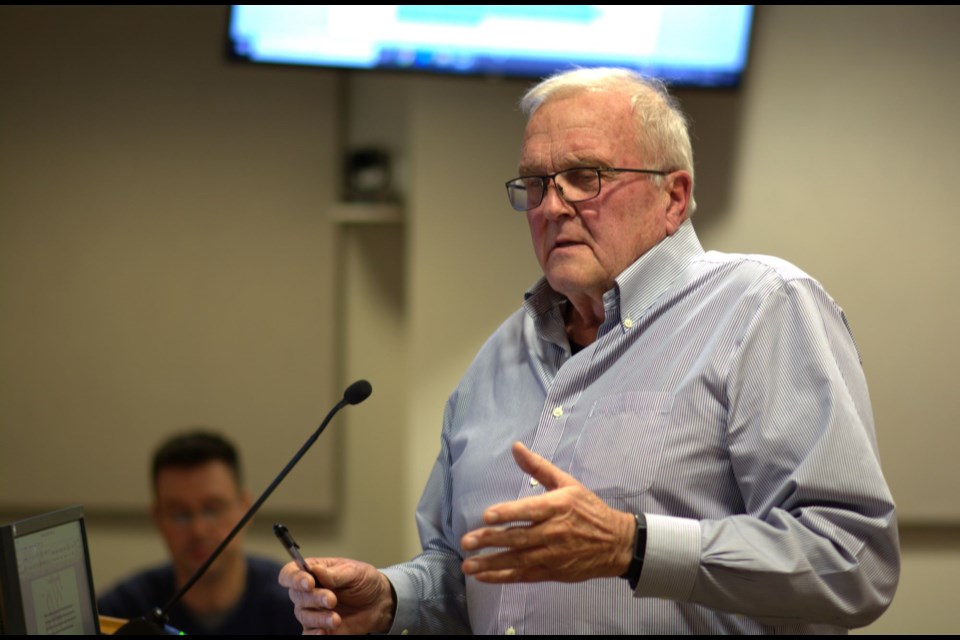To the best of our knowledge, no councillors have attended any of the five public input events. Four at the Elliot Lake Public Library, Aug. 29 and 30, and one this past Wednesday evening.
Sadly, the process that began with reasonable public participation at the library seems to have followed the council’s ‘leadership cues,’ as only seven residents attended the final public input on Wednesday evening at city hall. About fifty residents attended the library sessions.
Staff suggested that the councillors didn’t attend because the councillors were concerned about accusations of meeting impropriety. That can be a valid concern when a quorum of councillors is present at any meeting.
For a six-member council, a quorum is four. So, why one, two or even three, could not attend an event without concern, remains a mystery. And the mystery deepens each time the public sees the councillors attend some town halls and public planning events but not others.
According to the municipal clerk Wednesday evening, all of the councillors had attended the Centennial Arena Community Information Session, Oct. 5.
The topic of communication was one of the concerns raised at the Wednesday evening meeting, and the councillors could have communicated with the citizens about it- if they’d attended Wednesday evening.
‘Communication’ is a concern for the public and that should not be a surprising revelation to the council
Acting Mayor Andrew Wannan identified ‘communication’ as an opportunity for improvement two months ago when he spoke at the Centennial Arena Community Information Session, Oct. 5.
“It’s been gently and bluntly pointed out we probably don’t communicate well enough with the general public. And that could be true. [It’s] definitely something that we’re willing to work on. Tonight, [Oct. 5] is an example of that. And we’ve tried the town halls with other committees. It seems to be working well.”
So, consultant Dobbie was not getting ahead of the messaging when he told the handful of residents Wednesday evening, “Communications has been identified as something that needs attention. I agree.”
“This is a community whose residents are extremely interested in what’s going on in city hall. […] You have a very active community, so your communication, your ability to do communications, is not as sharp as I was hoping it would be.”
Dobbie continued and said that it would be his preference, to see someone hired for the role. It is a suggestion Dobbie has advanced at other meetings including at council.
Local resident Steve Calverley (the author of this article) said, “I’ve heard a number of references now about the importance of hiring someone for the communications role. But I think that the communication that we need is between the public and our council. And my concern is that to hire someone for that role, may just put one more insulator between us and our elected representatives.”
Susan Anderson, also a local resident, told the group, “I just wanted to state that in the form of communication, if you’re someone who is well known to council or well known in the community, I find that you can get responses. I find that their interaction with council or staff is different [for the well known] than the normal person, like myself. I’m not very well known in the community but I’m very active in the city.”
“I want the city to thrive and grow.” Anderson is regularly seen attending council meetings and was a volunteer supporting the All-Candidate’s Information nights during the election last year.
Addressing the topic of communication, local resident, Laurie Blake, asked, “What’s the framework? What’s the process on a move-forward basis that as a citizen of this community, I can expect to be able to have a two-way conversation with [councillors]? There are challenges. I don’t feel that I should have to go to a councillors workplace. That’s not fair to them.”
“But the process? I think that’s lacking. I think it’s been lacking for over a year.”
“We have a member of council saying, ‘how do we get people to stop criticizing us?’ It’s one word, it’s ‘communication.’”
Blake continued, addressing his next question to Municipal Clerk Natalie Bray. “Is it appropriate that prior to a council meeting, council members could go out and talk to people in the audience?”
Bray: “Before a council meeting? Absolutely.”
Blake described his experience at council meetings as feeling like ‘us and them.’ “If you want to try and understand people, you have to communicate. You may not agree, okay, that’s fine. That’s the way things operate. But at least you have to make the effort to communicate.”
“If the community really wants to start working as one, it has to start communicating as one,” he said.
Local resident Mike Thomas, also spoke about communications. He observed that the former practice of a question-and-answer period had been “abused a bit” but he wants to see more communication between councillors and members of the public.
“[The question and answer period] still worked for the public to feel like they were a part of the decisions or they had some impact. And in the communications part, a lot of the struggles we have to deal with are the concept of confidence and trust.”
“If people doubt what you’re doing, if they don’t trust the decisions you’re making, and if they feel like they aren’t part of a process […] it’s triggering. It breeds contempt. It breeds mistrust. It makes people feel like there is nothing accountable to my concerns or my opinions.”
An earlier comment made by Blake summarized what he sees as the communications problem- and the council's opportunity.
“If we ever started working together, it’d be terrifying what we could accomplish, but we’ve got to start working together.”
